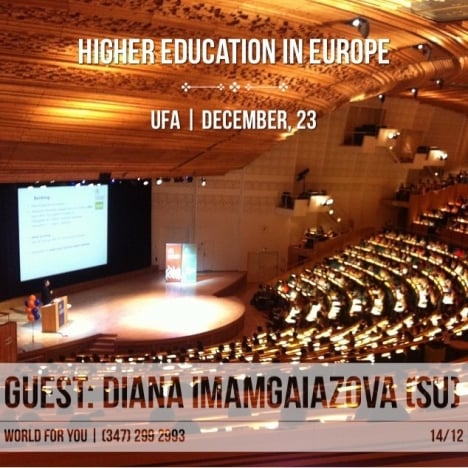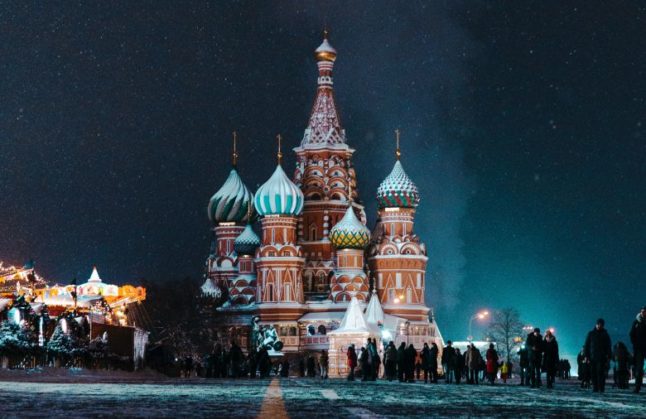Preparation
I was invited as a speaker by host organization in Ufa called World for you, specializing at English language courses and youth volunteering programs.
Being a certified partner of Erasmus+ program, World for you has done a lot for promotion of international volunteering in the region. I assumed that participants of the seminar would be interested in learning not only about study programs and scholarships, but also about international projects in Sweden (for instance, those Exchange and development programs of SI), so I contacted the SI representatives to get more up-to-date information and contacts for questions.
Irina Ovchinnikova ([email protected]) supported me with current information and material about Visby program and Baltic Sea region program.
Markus Boman ([email protected]) kindly offered his contacts to be spread during the seminar in order to answer the specific follow-up questions.
The seminar
The atmosphere at the seminar was very friendly and warm because of the pre-Christmas period and spirit. Still, I was facing a tough challenge of talking to an audience which is not familiar with the Scandinavian region.
The key Ufa’s partners for academic exchange and international collaboration are Germany, the United States and Canada, and Turkey. So I decided to devote the block of presentation to general information about Sweden as a hosting country for studies and research and it proved to be useful.
The most difficult part was the question-and-answer session after the presentation when I got lots of very precise enquires like ‘I have a degree and professional experience in the oil chemistry and I would like to make my Ph.D. in Nordic region, what steps I should follow to achieve that?’
Of course, there is no way to predict every tricky question like this, but it’s always good to prepare a back-up for yourself: the contacts of people who have an expertise in the field (from SI, your university or your colleagues with various backgrounds).
Feedback
The most exciting part was to collect the post-presentation feedback from the social networks. The two main points I’ve learned from the critical notes/impressions of the participants:
1. It’s always beneficial to highlight the ‘banal’ questions such as accommodations, live costs and the student life in the foreign country, because the audience would be interested to learn about it from your first-hand experience. Also try to feature the photo or video materials about student activities and everyday life;
2. It’s better to concentrate on general admission scheme and provide additional sources rather than try to cover the whole application/admission process which may vary in different study programs and the fields.
I hope my report will be useful for those who are planning to become SI ambassadors back at home. I think the essential role of NFGL members is to share our knowledge across the world. Remember, sharing is caring!

Pre-Christmas educational seminar in World for you, Ufa

Seminar advertisement from social network (at the picture: Aula Magna, Stockholm University)


 Please whitelist us to continue reading.
Please whitelist us to continue reading.